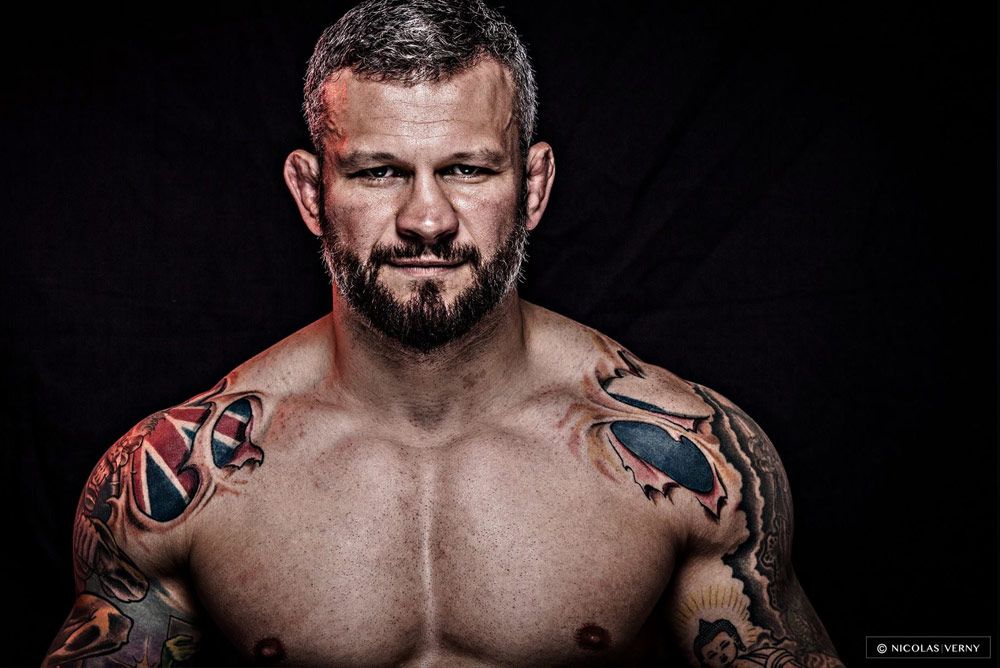
Interview with Jess Liaudin
Originally from France, Jess has carved himself a career that has taken him all around the globe. Fit For Films gets the chance to have a chat with the explosive Jess Liaudin talking about his inspiring journey, training, nutrition and making the exciting transition from the UFC stage to the silver screen.
Tell everyone a little bit about yourself Jess, where you grew up and how you got into fighting?
I was born In Evry, France which is just outside of Paris. I started Martial Arts at the age of 8 with Judo and then I moved onto Karate at 10. Back then I wasn’t very good at all because I was very submissive. I used to get physically abused by my father, kicked, punched and ground and pounded, there were no limits as to what he would do to me.
I suppose I was doing MMA from much earlier than I remember. At 14 I left home and started my new journey as a homeless person before moving to a special care centre. From there I came out of my shell and became a lot more confident, and that’s when I started Thai Boxing. From the age of 16, I competed in various stand up styles of fighting.
In 1993 I fought in Houston, Texas and won a Kickboxing Championship. Because I was the only foreigner all the contestants wanted to do was chat to me. The first ever UFC happened only a couple of weeks earlier and everybody was talking about it. The following day I saw the tape of the event and from then I knew that was what I wanted to do. I started competing MMA in Europe in the late 90’s. At first, we fought in small events or part of unlicensed boxing events, but by the mid 2000 the sport got bigger and we started to compete in a packed Wembley arena. I signed with the UFC in 2006 and before I knew it I was knocking out my opponent in front of 20,000 people at the 02 arena and live TV around the world.
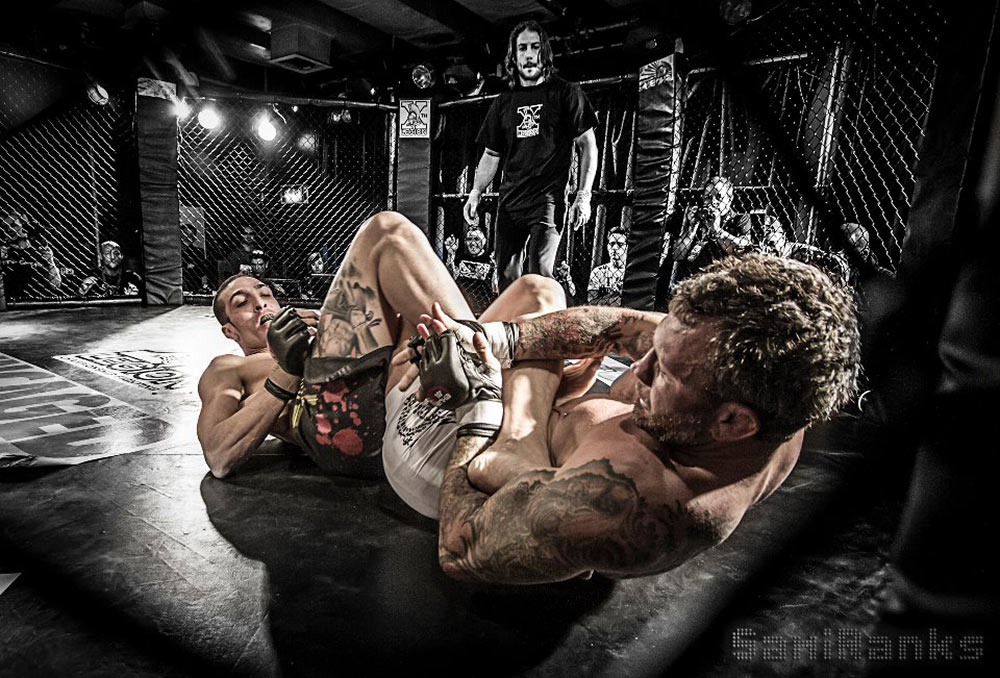
Photo by Sami Ranks.
It’s an amazing accomplishment to make it from fighting in the UFC to acting on the silver screen. Could you tell us how that journey happened?
I became a professional fighter by accident to be honest but working in films is what I always wanted to do from a young age. As a kid I was very introvert and didn’t have any friends, but I was full of creativity and I use to spend hours drawing and writing stories, either on paper or in my head, so I used to find refuge in my little world. Back then I got a little weekend job in a video store and started watching a lot of film, and that is where my love for movies started.
Unfortunately, in the early 90’s there wasn’t any openings for a street kid like me to get into the film business. So, I express my creativity through fighting, and it took me nearly 30 years before realising that maybe I could get a shot at this “acting thing”, that I had always dreamt of. I quickly realised that I wasn’t going get in by the front door like some people, but if I hustled long and hard enough maybe one day I could get in from the back door. I started in this business 7 years ago, so technically I’m still a puppy to be fair, but it didn’t take me long to realise how the business worked and what I should do to hopefully get opportunities coming my way.
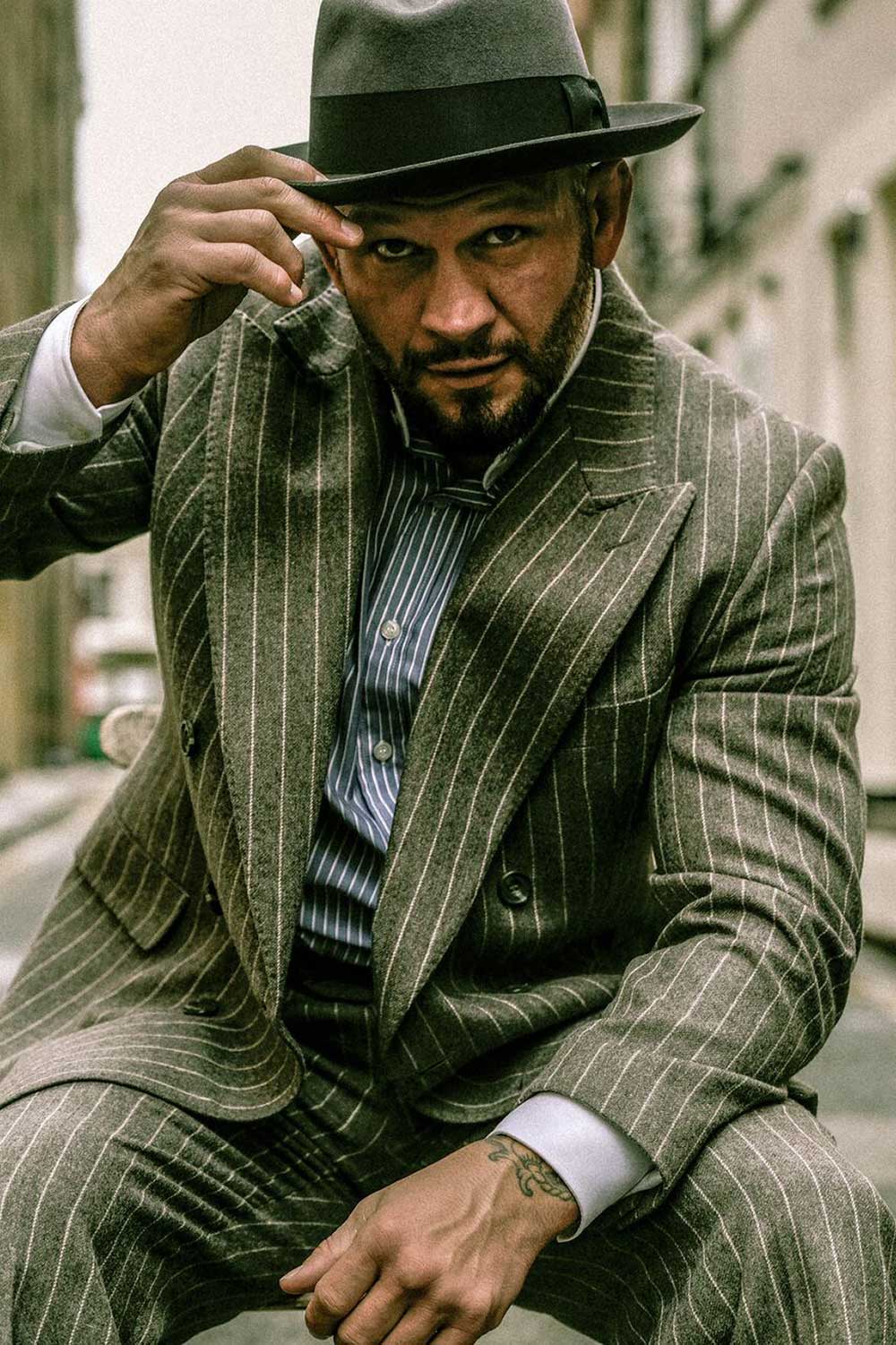
Photo by Alex Bather.
Getting to travel is one of the great things about making movies, but how do you manage your training and nutrition to stay in great shape when you are away filming?
I competed for 24 years with close to 100 fights and had to lose between 10 to 40lbs for each fight, so I know my body pretty well. I eat pretty much what I’ve been eating all my life, which is chicken, tuna, eggs, rice and vegetables. For me this isn’t a diet anymore it’s simply what I eat and I actually enjoy it, especially if I train and have an active lifestyle, I need good clean food. To be fair the catering on film in the west are way better that they use to be and there are no excuses to have bad food. What I would advise people is to not have a massive lunch but keep half of it for mid-afternoon, so you won’t be tempted by the Jaffa cakes that are next to the kettle. Or even worse when you work on big productions, they always have muffins or smoothies, which can be a bad idea if you are working on the production for several months.
One of my big secrets is that I always pack various tins of tuna or sardines in my bag and that saved me a few bad meals, especially in the evening when everything is closed. Overseas, it’s the same, if there is a 7/11 that means that I can find some tuna, a banana and two big bottle of water, I’m not even looking at the rest. My real problem isn’t so much my diet but to stay consistent in my training. Sometimes the pickup times are very early so I don’t have time to go to the gym, which opens at 6am, and more often than not you are finishing late with lines to learn for the following day. But if the gym is open I will always try to go there first before getting home. Even worse is when you are overseas because most gyms don’t do monthly membership and open very late in the morning, that is if there is a gym where you are of course.
If you are shooting in a studio in the middle of China for example, forget about finding a gym. If you are a movie star you still have to get up at 4am to get your workout done before going on set, but at least they don’t have to worry about all of those small details because production will take care of it. Me, I’m just a regular actor and more often than not I get to improvise my own workout in my hotel room. I usually travel with different elastic bands, and if I don’t have a gym that I can use then I use my bands for extra resistance. I improvise a training circuit that includes sprints, running up and down the stairs or burpees. I keep it short but as intense as I can. If I can manage to go to a gym sometimes I will keep my exercises very basic like pull ups, squats and bench presses.
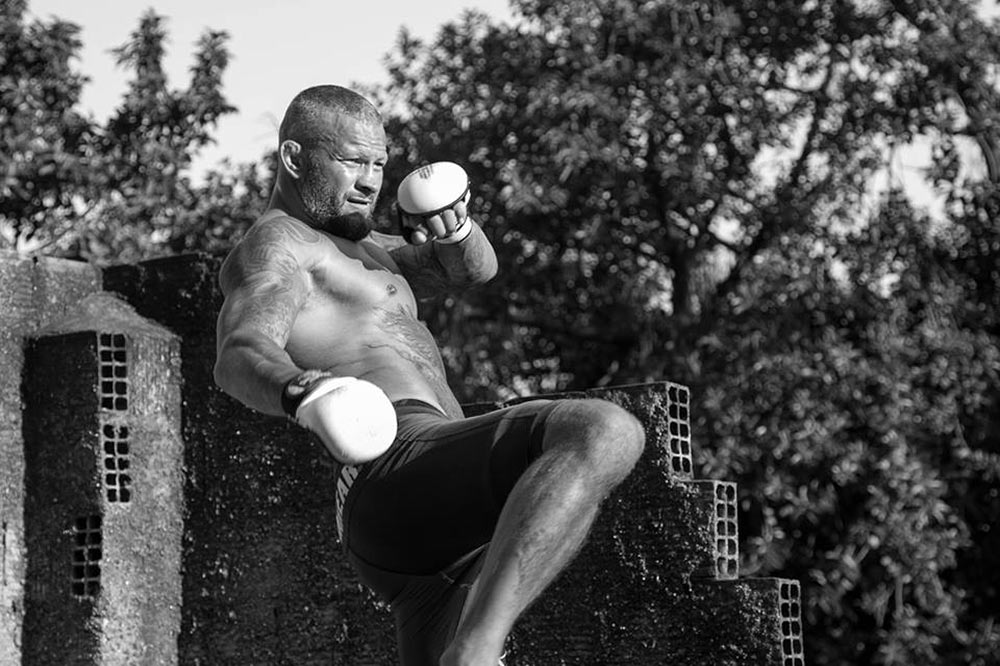
Photo by Paul Beletre.
On the subject of nutrition, do you have any thoughts on how nutrition and/or supplementation plays a role in optimising how you perform and function?
I have never been a big supplement guy to be honest, I use protein shakes after a weight session and I take some supplements for my joints but that’s about it. I find them very expensive and I would rather get what I need from food.
For a long time, I couldn’t really afford some nice food, like a piece of salmon for example, because for us that was rich peoples food. But now that I can afford to buy it I would rather have that or avocado, fruit and nuts than buying supplements.
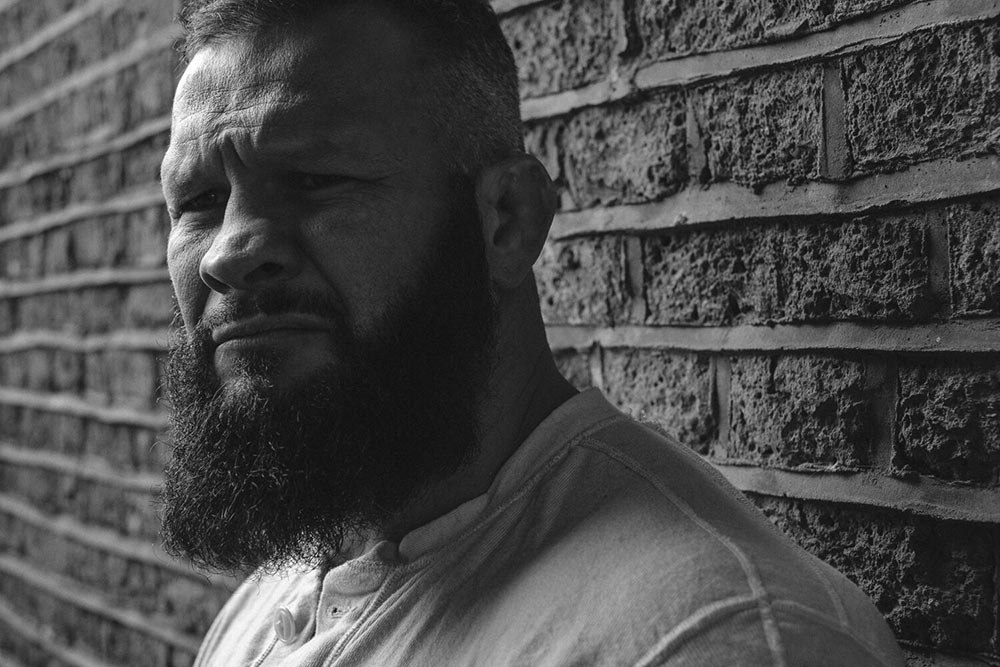
Photo by Dean Bradshaw.
Do you feel that your mind set from the years of fighting and never giving up has helped you pursue your acting career? How do you stay focused?
It’s completely different, fighting is a lot harder but at the same time easier. In fighting you know your goals and what it required of you, it’s pretty simple. Train hard, eat well, push yourself, take some amateur fights, semi pro, fight professionally and then each and every fight will take you closer to your goal. Not everybody can do it but if you put your mind to it it’s pretty straight forward. Don’t get me wrong, to be one of the big boys that got fame and fortune you will still need to meet the right people along the way, get a little lucky and be at the right place at the right time. But even if you don’t become the next big thing, you can still have some sort of success with hard work and dedication.
In the film business it’s a lot more complicated, you can do everything right and still not get a shot, you can play a lead one day and then only get a small role offer afterward. There are no rules and no blueprint in this business. You have to hustle and hopefully you will get opportunities along the way. If you hit the jackpot at some stage it doesn’t guaranty longevity. So, in that way it’s a lot more frustrating and you have to be a lot more patient. That’s when another part of my martial arts training comes into play, not so physical this time but mentally. You have to keep control of your emotions and not let your frustrations dictate your attitude or you will come across as being negative, and that would result in less jobs, if any at all.

Have you had to learn any new skills for the roles you’ve played?
Yes, shooting and to be honest I really enjoy it. I couldn’t shoot a person or a living animal to be honest, but shooting targets is fun and it’s something I would love to do as a hobby. Unfortunately, it’s not very popular in the UK. Besides that, I have always wanted to learn new tricks here and there in fighting.
Martial arts are a never-ending journey and you still learn all of the time but the main thing that I enjoy is the actual skill of making movies, I’m always learning how to work with cameras, what angle is best, why we should have a different light in this scene etc… I love learning those skills on set that I can hopefully use on another project. Also, now when I talk to people about the technical aspect of making films, I know what I am talking about and can straight away figure out if someone is full of crap or not.

Photo by Dean Bradshaw.
What’s the difference between fighting in the octagon and fighting on the big screen? Has it been an easy transition between the two?
In all honesty it was pretty easy for me because I’ve watched so many films and emulate them for so many years. Back in the 90’s I remember learning some kicks from watching films like “Best of the Best” and then using them in real combat. The basic principal of martial arts is controlling the distance, timing and control of your body. Now I believe that these are the same qualities to be a good fighter on screen, it’s not because you are a very successful fighter that you are necessary a good martial artist. To be a good fighter you need a strong mind (confidence), great conditioning and then the technique would come into play. I know some very good fighters that win because they are very tough and train hard, and they often beat people that are way more skilful than themselves. So, it’s not because you are a champion that you can be a good screen fighter. Being able to beat someone with a single kick is very impressive but being able to kick someone 50 times without hurting them, requires a different kind of skill.
Working in Hong Kong is even harder because your timing and positioning needs to be perfect, because the actors don’t often use doubles and the sequences are very long, so you better not mess up. I had the privilege to fight Donnie Yen last year on a one on one battle, and it was another learning curve for me. Especially working with such coordinator as Kenji Tanigaki.
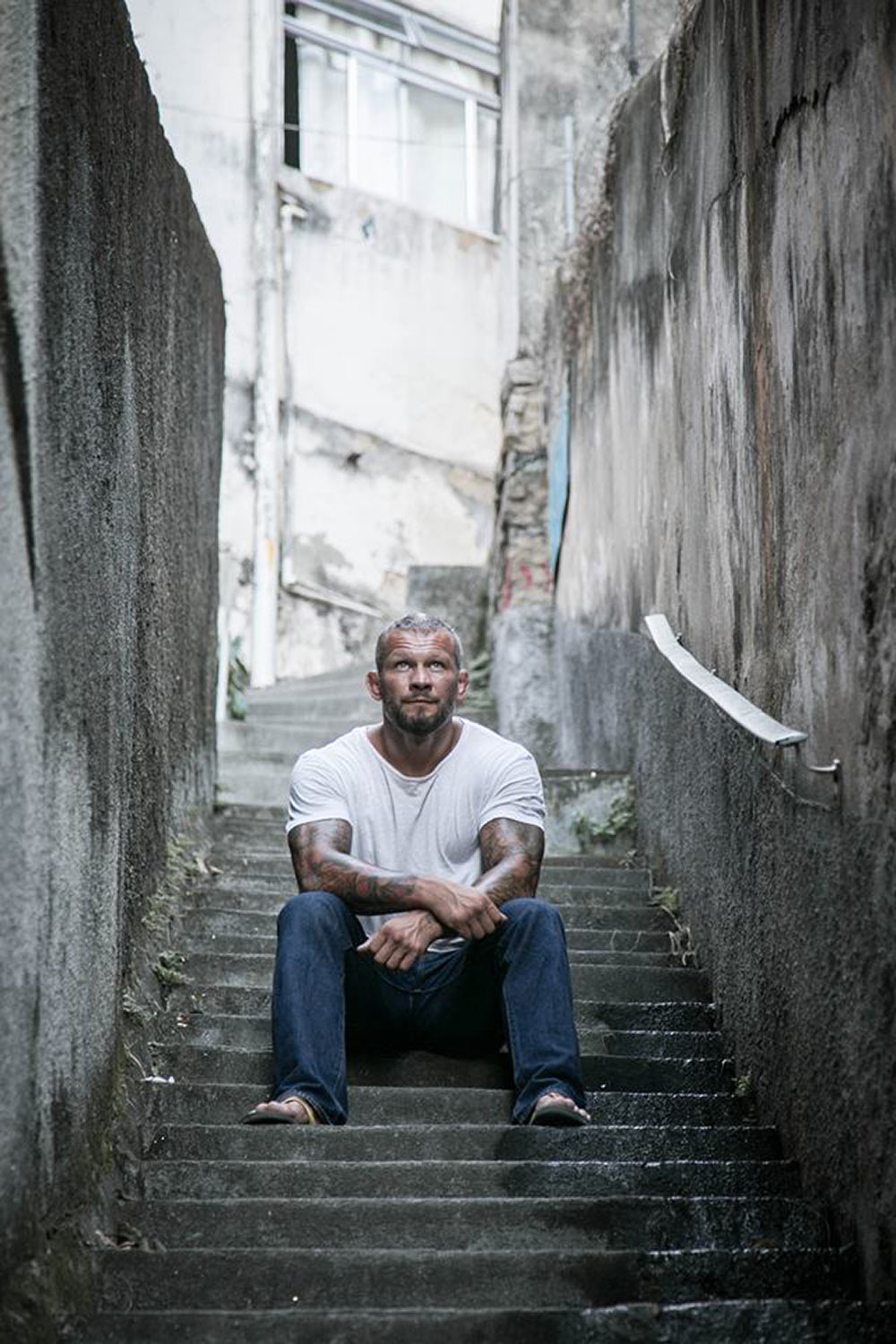
Photo by Paul Beletre.
What is your favourite movie that’s inspired you? And who is your favourite actor?
I can never answer this question to be honest, I love way too many films to only mention one or even 10. My favourite actors are Jean Paul Belmondo, Gary Oldman, Gene Hackman and Denzel Washington.
We would like to send out our thanks to Jess for letting us interview him and for taking a break from his busy schedule. If you would like to see more from Jess please check out the links below:



